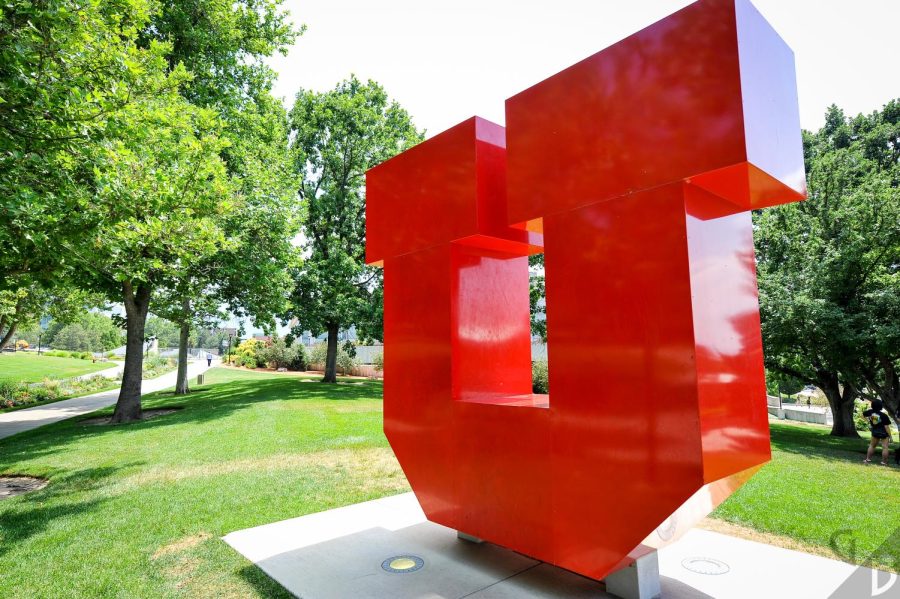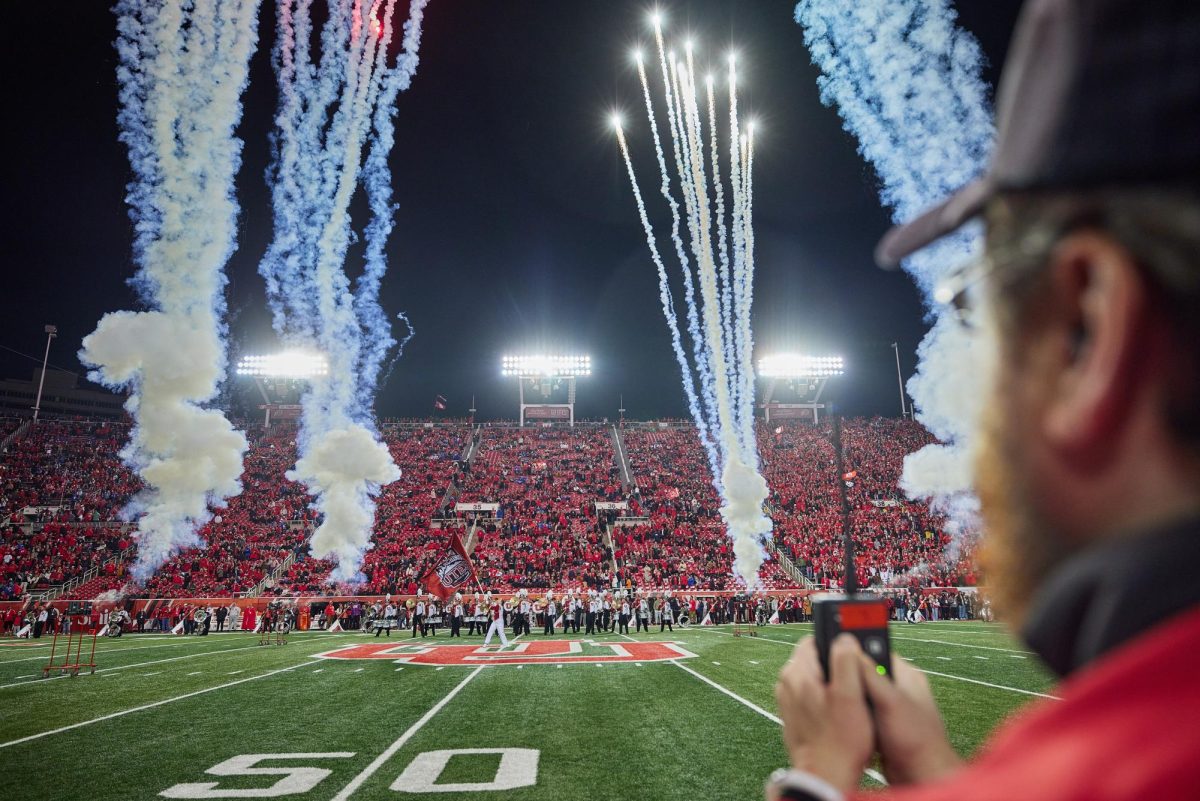What U Students Should Know About Monkeypox
The Block U on the University of Utah Campus in Salt Lake City, Utah on July 12, 2017. (Photo by Adam Fondren | Daily Utah Chronicle)
September 1, 2022
In July, the World Health Organization declared the monkeypox outbreak a “Public Health Emergency of International Concern” with most of the cases being in the European region. As of Aug. 29, there are more than 18,000 confirmed cases in the U.S. alone.
According to the Utah Department of Health and Human Services, there have been 100 confirmed and probable cases of monkeypox reported in Utah, with 72 of those being in Salt Lake County.
According to the Centers for Disease Control and Prevention, monkeypox is a viral disease primarily spread through close or intimate contact.
Symptoms of monkeypox show up as flu-like symptoms such as fevers, chills, muscle aches, swollen lymph nodes, exhaustion, headaches and respiratory symptoms. People infected may also experience a rash, which can look like pimples or blisters before scabbing.
Nicholas Rupp, communications director for the Salt Lake County Health Department, said, “Monkeypox is most often spread through close personal skin-to-skin contact and that can include sexual contact. Monkeypox is not a sexually transmitted infection because it is spread through other means besides sex.”
In an email interview, Dr. Mark Pfitzner, director of the University of Utah’s student health center, said, “From current epidemiologic data, this is mainly among men who have sex with men and who have multiple sexual partners.” He added, “Sexual transmission has thus far been the main way cases have been acquired.”
Rupp said sex is one way it can spread, but it can also be spread by coming into contact with fabrics like clothing, bedding or towels that have been contaminated with fluid from a monkeypox lesion.
Currently individuals at highest-risk are men who have sex with multiple men, Pfitzner said. “Everyone should be at least aware of the illness, signs, symptoms and what the rash could look like,” he said.
Currently, there is a vaccine available to high-risk individuals for monkeypox. According to the Salt Lake County Health Department, to be eligible to receive a vaccine an individual must be a man (cisgender or transgender) or a nonbinary individual who has sex with men, who is not in a mutually exclusive, monogamous sexual relationship with only one person and does not have any symptoms of monkeypox.
There is not a vaccine available at the Student Health Center yet, but Pfitzner said hopefully vaccine availability will increase and the center will eventually have it available.
Rupp said most cases in Salt Lake County have occurred through direct skin-to-skin contact, including sexual contact. “Monkeypox isn’t easily spread since you have to be touching or in extremely close, long contact,” he said.
To prevent monkeypox without the vaccine, Rupp said people should avoid intimate, sexual or skin-to-skin contact with anyone who has flu-like symptoms or a new or unexplained rash.
Although monkeypox has been declared an emergency by the World Health Organization, Rupp said the general public doesn’t need to worry about monkeypox too much for now.
Handwashing and keeping surfaces clean are good ways to prevent infection, Pfitzner said, as well as keeping from sharing unwashed clothing, towels and bedding.
Students should be aware of the virus and any potential symptoms, though the health department is only offering to tests those without insurance, according Pfitzner.
It is recommended that students with concerns about contracting monkeypox visit their own doctor. Testing is offered at the student health center, Pfitzner said. He suggested patients who are waiting to be seen should cover up any rashes and wear a mask.












